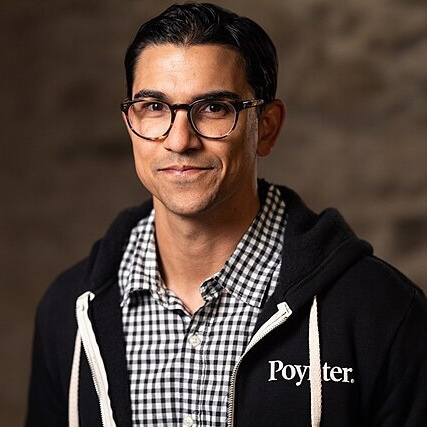TikTok is the latest social media platform to roll out a crowdsourced fact-checking experiment. Its version is called Footnotes.
The social platform says the new feature won’t replace the partnerships with more than 20 fact-checkers that currently debunk misinformation on TikTok. Users in the U.S., over the age of 18, who have used the platform with no recent violations of community guidelines, can apply to contribute to Footnotes starting today.
“Our comments section and other tools like Stitch and Duet already empower people to share their opinions and engage in dialogue around content,” the company said in a release. “Footnotes offers a new opportunity for people to share their expertise and add an additional layer of context to the discussion using a consensus-driven approach.”
X launched the first major crowdsourced fact-checking experiment in 2021, originally called Birdwatch and now known as Community Notes. YouTube added its own in 2024, and Meta followed in a high-profile move that included severing professional fact-checking from its platforms.
As a standalone trust and safety feature, crowdsourced fact-checking falls short of meaningfully curbing misinformation on social media, according to four years of Poynter analyses of Community Notes. But if TikTok does indeed retain professional fact-checkers, its program has the greatest chance of success. The pros can still quickly debunk the most harmful and viral misinformation, while Footnotes contributors can add context to videos that don’t meet that threshold.
In previous Poynter analyses, we’ve found Community Notes contributors are quick to flag misleading video game advertisements, scams and images created with generative artificial intelligence. As part of a holistic fact-checking approach, crowdsourcing can be an effective way to increase the volume of debunks on a social media platform.
Meta CEO Mark Zuckerberg and others have applauded a crowdsourced system’s scale: Lots of contributors equals lots of notes.
And Community Notes has served as a model for other platforms, including its bridging algorithm, which only shows a note (fact check) to all users if it’s upvoted by people with a wide range of perspectives. But in practice, that means conservatives and liberals have to agree for a a note to appear — a design that hobbles the system’s ability to surface lots of notes.
X’s Community Notes has consistently surfaced less than 10% of notes left by contributors, according to a Poynter analysis. That number has gone down following a change to the algorithm in late February — a week after Elon Musk complained about note debunking anti-Ukraine misinformation — and another April 1. Since the beginning of March, the ratio of public notes has dropped to 8.2% and is at 7.6% so far this month.
This year, Community Notes contributors have managed to append 230 “helpful” fact checks to posts on average each day. And since the program launched, roughly 134,000 posts have been flagged with a note — a blip considering the millions of posts shared every day on X.
There is no measure of accuracy or quality — the only metric of success is whether the note was “helpful” to a variety of perspectives. And X ended a feature that allowed users to tag misinformation as “harmful” in October 2022.
Community Notes has been a good model for other platforms in its transparency around the system. The bridging algorithm is public, as is data on all the notes left by contributors.
Fact-checkers enrolled in Meta’s own Community Notes program have started flagging misinformation but haven’t seen any of their notes attached to posts. The company has not made the algorithm or data behind the system public, so measuring its success will be difficult for journalists and researchers.
The looming ban or sale of TikTok clouds Footnotes’ future. But, as Poynter reported in November 2022, Musk in a surprise move embraced Birdwatch after buying Twitter.







